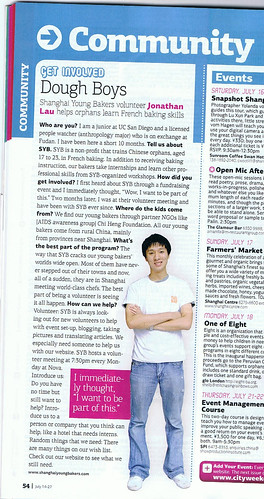A month ago, I headed out to my favorite pub to hear Kurt Lipson, cofounder of Dash Brands, talk about building the Subway franchise in China. His frank and humorous account gave great insight about doing business in China.
Reintroducing the Sandwich
“What is a sandwich?” That was the first question that Lipson asked himself when he arrived in China and began building Subway. The answer that Lipson received from focus groups and other sources was far from flattering. To the Chinese, a sandwich was a cheap, cold food made out of triangular pieces of bread and mayo that above all was not very good. In order to for Subway to succeed, Dash Brands needed to change Chinese perceptions of the sandwich. Changing the sandwich from a cold food to a hot one was important as Chinese culture prefers hot food to cold. According to Lipson, the solution turned out to be humorously easy because they just put flames on all their marketing collateral, even if it had nothing to do with what they were advertising.
Tomatoes, Lettuce and Pirates
In the beginning, Dash Foods had major problems with their supply chain and pirated stores. The lack of supply infrastructure is a problem that plagues all companies in China. Subway store managers were spending hours calling their tomato and lettuce suppliers trying to secure shipments rather than managing their stores. This problem was eventually solved with the hiring of a logistics company to manage the supply chain of Dash Food’s. Pirated Subway stores was also a huge problem when Dash Foods first entered the region.
Many of these pirated stores were once legitimate stores whose contracts expired but are still operating under the Subway name. These illegitimate stores look like a normal Subway, but they get their supplies outside of the Dash Foods supply chain, often from the local grocery store. Shutting these illegitimate stores down required working Dash Foods to buy the owners out and at times even work with the slow Chinese legal system. Even now, the job is not complete as there is still a pirated Subway in Lujiazui, the financial center of Shanghai.
Learning from Mistakes
Lipson shared a marketing mistake they made three years ago while trying to run a viral online marketing campaign. The campaign generated high amounts of traffic to the website but that traffic did not convert into coupon use and sales. Monetization of internet traffic is still a major issue for companies today and I can only guess at how developed Dash Food’s approach was three years ago. Lipson cites the lack of a key performance indicator and the undeveloped nature of internet marketing for the lack of success.
One business mistake that Lipson mentioned which seems to be a mistake shared by all foreign companies in China is the issue of expansion. Seduced by the size of the market, foreign companies rush to expand in China without properly researching the market, resulting in failures from a lack of demand. Lipson admitted to a lack of due diligence when the Dash Foods was involved in their own fast expansion. He gave one example of a Subway that they set up in Changsha, a second tier city. Dash Foods was struck by the beautiful state of the art mall that they were opening the new Subway. After a few months, it became very clear that the shiny new mall would stay empty for the foreseeable future.
Doing business in China
The most memorable story that Lipson told dealt with the opening of the East Nanjing Road Store, a major tourist destination in Shanghai. Everything was going well up until the health inspector arrived and told Lipson and company that they could not open the store, due to a laundry list of nonsensical reasons, such as the heating unit being too close to the refrigerated food and the need for a clear divide between the customer and food prep section. These reasons had never been a problem at past openings, so Lipson and his partners knew that there was more to what the inspector was saying. What happened next, is what Lipson called the cost of doing business in China. Lipson and his partners took the health inspector out and partied with him all night. No expense was spared to make the inspector happy and in the end the store was allowed open. In addition, the health inspector became a good friend and every Chinese New Year Lipson and his partners are invited over for dinner.
Conclusion
Reading about doing business in China pales in comparison to hearing from someone who has actually done business in China. Though I imagine actually doing it yourself is the most exciting of all.

No comments:
Post a Comment